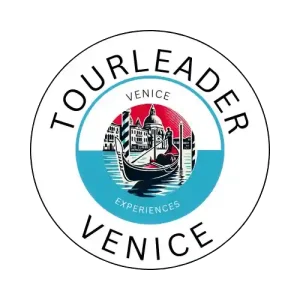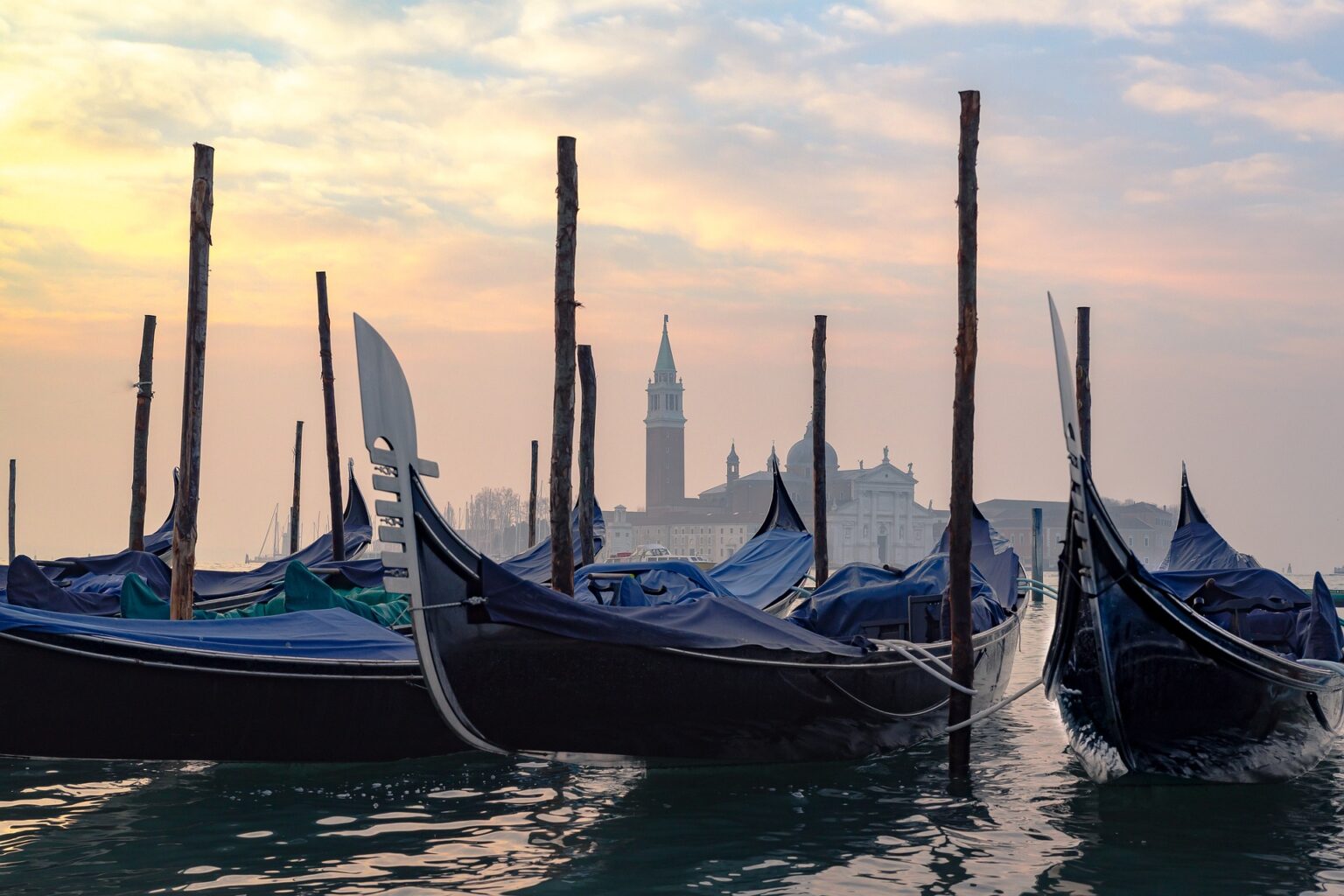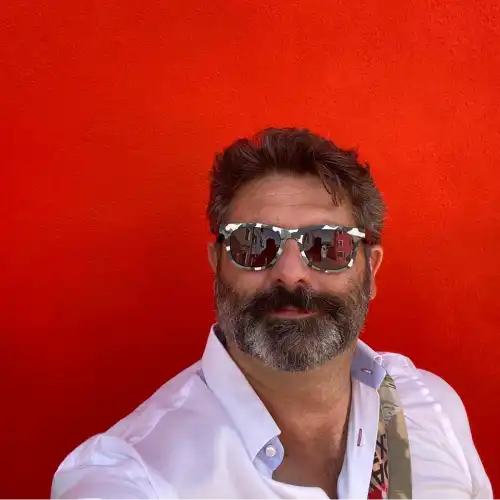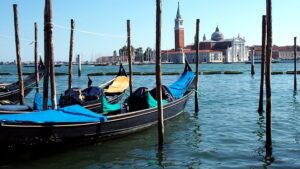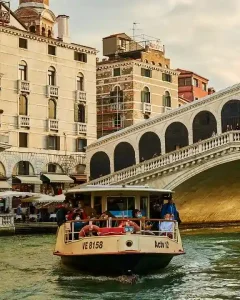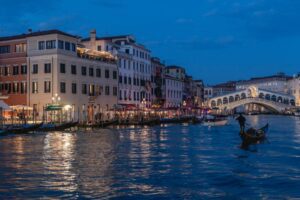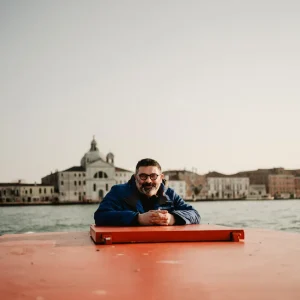Most Popular Questions About Venice — Answered by a Local
Venice — the “Floating City” — is one of the most romantic and fascinating places on Earth. Built on over 100 islands connected by a maze of canals, bridges, and alleys, it’s a living masterpiece of art, history, and heart. In this guide, we’ll answer the most common questions travelers ask about Venice — from the best time to visit to how the city still stands (and floats!) today.
1) When Is the Best Time to Visit Venice?
Venice is enchanting all year, but each season tells a different story:
- Summer (June–August): Warm, lively, and festive — ideal if you love vibrant energy and long days on the lagoon.
- Spring (April–May) and Autumn (September–November): The sweet spot — fewer crowds, gentle light, and perfect for exploring Venice off the beaten path.
- Winter (December–March): Misty canals, quiet alleys, and Carnival season. Venice feels like a dream in slow motion.
Tip: Always check what’s happening before you go — from art shows at the Peggy Guggenheim Collection to Vivaldi concerts and local festivals.
2) When Does the Carnival of Venice Take Place?
Venice’s Carnival usually begins two weeks before Ash Wednesday and ends on Fat Tuesday. It’s a whirlwind of masks, music, and mystery — when the city becomes an open-air stage. Imagine dancing in St. Mark’s Square, surrounded by 18th-century costumes and live orchestras.
Carnival is also a great time to visit artisan workshops like our Venetian Mask Workshop — you can make your own traditional mask to wear during the celebrations!
3) When Was Venice Founded?
Venice’s story began in the 5th century AD, when refugees escaping barbarian invasions settled among the lagoon’s islands. Over time, those marshy refuges became a powerful republic known as La Serenissima — one of the world’s greatest maritime empires.
You can still feel those origins in quiet corners like Castello or Lido Island, where Venetians live much as their ancestors did — close to the water, proud of their roots.
4) Will Venice Sink?
Venice isn’t “sinking” so much as the sea is rising. The city rests on wooden piles driven deep into clay, but sea-level rise and land subsidence make it vulnerable to floods. Thankfully, the MOSE flood barrier system now shields the lagoon from most high tides.
Learn more about how Venetians adapt to acqua alta in our article What Is Acqua Alta and When Does It Happen?.
5) When Does Venice Flood?
Floods — known locally as acqua alta — usually happen between October and December, when high tides and winds push seawater into the lagoon. Walkways appear, boots come out, and the city keeps moving. Most floods are shallow and brief, part of daily life for Venetians.
Experience life during high water safely with our Private Grand Canal Tour — seeing Venice from water is the best way to understand it.
6) What Does “Venice” Mean?
The name “Venice” comes from the ancient Veneti people who once lived in the region. Their land — Venetia — gave birth to the name and to a civilization that would shape art, trade, and architecture for a millennium.
You can trace these roots at historic sites like the Doge’s Palace and St. Mark’s Basilica — both timeless symbols of the Republic.
7) What Is Venice Like?
Venice feels like stepping into a painting — quiet canals, shimmering reflections, and a rhythm unlike any other city. Here, boats replace cars, bells mark the hours, and every corner hides a secret story. Locals shop at morning markets, sip coffee at bacari, and celebrate life with festivals that have lasted centuries.
To feel it for yourself, join our Off-the-Beaten-Path Orientation Tour — it’s Venice as Venetians live it.
8) What Venice Hotel Was Featured in Casino Royale?
The dramatic finale of Casino Royale (2006) takes place at the luxurious Hotel Danieli, just steps from St. Mark’s Square. Its Gothic façade and lagoon views made it the perfect backdrop for 007’s Venetian adventure.
To explore Bond’s Venice, try our Private Boat Tour of the Grand Canal — you’ll glide past the same palaces seen in the movie.
9) What Venice Hotel Appears in The Tourist?
Once again, Hotel Danieli steals the show — featured as the fictional “Hotel de la Ville” in The Tourist, starring Angelina Jolie and Johnny Depp. The film showcases the same cinematic beauty you’ll see while cruising the lagoon at sunset.
For a real-life scene fit for Hollywood, book our Private Gondola Ride — it’s romance straight from the movies.
10) What Is Venice Famous For?
- Canals: Over 150 waterways, best explored on a Cicchetti & Wine Tour or gondola ride.
- Architecture: A mix of Gothic, Byzantine, and Renaissance beauty — best seen on our Doge’s Palace & St. Mark’s Tour.
- Murano Glass: Witness the craft firsthand during our Murano Workshop and Visit.
- Carnival: Elaborate masks and centuries-old elegance.
- Cuisine: Seafood risotto, sarde in saor, and prosecco — pure lagoon flavor.
11) What Makes Venice So Special?
Venice’s magic comes from its contrasts — fragile yet eternal, chaotic yet serene. It’s a city built on water, designed for beauty, and sustained by passion. Nowhere else blends art, architecture, and daily life so seamlessly.
For an unforgettable perspective, sail across the lagoon on our Venice Sunset Tour on a Traditional Bragozzo Boat — a slow journey through time, light, and silence.
12) Which Is the Venice Train Station?
If you’re arriving by train, head for Venezia Santa Lucia Station — the only station inside the historic city. Step outside, and the Grand Canal is right in front of you! From there, hop on a vaporetto, a private transfer, or simply start walking — every direction leads to something beautiful.
We also offer private transfers from the airport to your hotel — stress-free, scenic, and fully managed.
✨ Experience Venice With Us
Whether you’re exploring by gondola, discovering artisan secrets, or chasing sunset light across the lagoon, we’re here to make your visit unforgettable — authentic, easy, and beautifully Venetian.
FAQs — Most Popular Questions About Venice (Answered by a Local)
When is the best time to visit Venice?
The city is magical year-round, but the sweet spots are April–May and September–November, when the light is soft, the weather mild, and crowds thinner. Spring brings blossoms and festivals; autumn offers golden reflections and seafood season. To plan perfectly, see our guide to the Best Time to Visit Venice — Month-by-Month.
Does Venice really flood every year?
Yes — but only briefly and mostly in late autumn. High tides called acqua alta appear between October and December. Raised walkways and new flood barriers keep daily life running smoothly. Learn how locals adapt in What Is Acqua Alta and When Does It Happen?.
What’s the best way to experience authentic Venice?
Go beyond St. Mark’s. Wander Cannaregio and Dorsoduro, shop artisan workshops, and taste local food in lively bacari. For an insider start, join our Off-the-Beaten-Path Orientation Tour or enjoy the Venice Cicchetti & Wine Tour to eat and drink like a Venetian.
